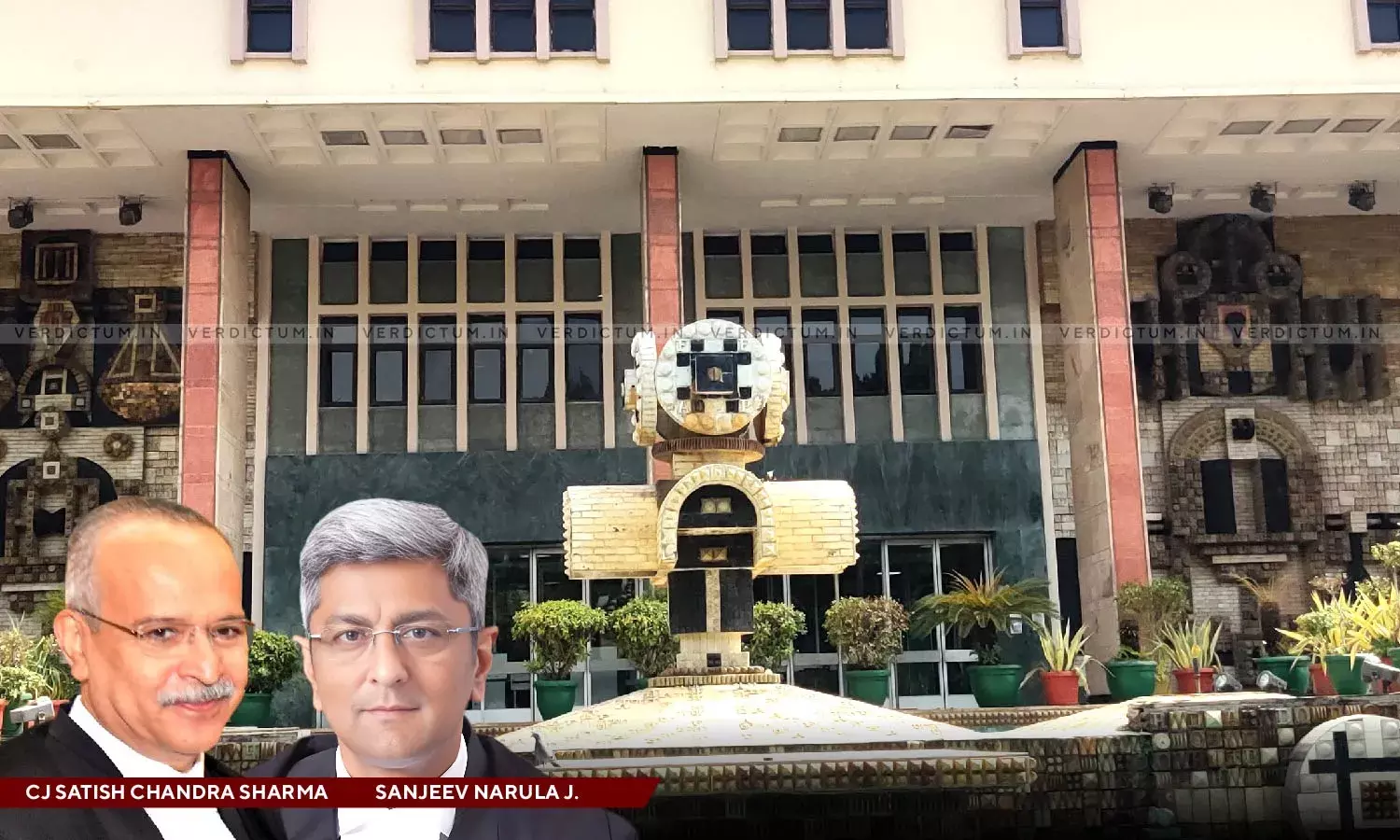A Frivolous Litigation Based Solely On News Reports Without Any Proper Research: Delhi HC Dismisses PIL On Electric Vehicles

The Delhi High Court, in response to a Public Interest Litigation (PIL) regarding electric vehicles (EVs), held that the existing laws and regulations, including the Motor Vehicles Act and Central Motor Vehicles Rules, already cover the issues raised in the PIL, such as mandatory insurance and helmet usage for EVs. The Court criticized the petitioner for filing a frivolous PIL based solely on news reports and advised caution when filing such cases in the future.
A Division Bench of Chief Justice Satish Chandra Sharma and Justice Sanjeev Narula held that, “As the relevant provisions of the MV Act and CMV Rules are already applicable to EVs, specifically pertaining to mandatory insurance cover, wearing of headgear on two-wheelers and penal provisions for noncompliance of the provisions, this Court is of the opinion that no orders or directions are required to be passed in this respect.”
The petitioner in this case had filed a PIL under Article 226 of the Indian Constitution, raising concerns related to the use of electric vehicles (EVs) in the country. The petitioner raised concerns and requested various reliefs, including compulsory insurance for 2-wheel EVs, mandatory helmet usage for all EVs, guidelines for reliable battery manufacturing, timely subsidy release, and other reliefs.
Advocate Gurdas Khurana appeared for Respondent No. 1/Union of India and Advocate Anuj Aggarwal appeared for Respondent No. 2/Government of NCT of Delhi (GNCTD).
The respondent authorities, including the Union of India and the Government of NCT of Delhi, argued that EVs are considered motor vehicles under existing laws, with mandatory insurance and helmet requirements. They also pointed out that the petitioner didn't challenge specific exemptions in the rules.
They suggested involving the Automotive Research Association of India (ARAI) for battery manufacturing guidelines. They informed the Court that Delhi government is promptly providing subsidies to EV buyers under its policy.
The Court analyzed the definition of a "motor vehicle" under the Motor Vehicles Act and Central Motor Vehicles Rules, which included EVs unless they meet specific exemptions. Therefore, the MV Act's provisions, such as mandatory insurance and helmet usage, apply to EVs.
The Court highlighted relevant sections of the MV Act, including Section 146 (compulsory insurance) and Section 129 (helmet usage), along with associated penalties.
Additionally, the Court noted that technical standards for vehicles and components are set by the Automotive Research Association of India (ARAI) and that the Ministry of Road Transport and Highways has issued notifications regarding standards for traction batteries used in battery-operated vehicles.
The Court was assured that the subsidy for electric vehicles in the National Capital Territory of Delhi (GNCTD) is being disbursed promptly.
Ultimately, the Court found that no further orders or directions were necessary since existing laws and regulations adequately cover the issues raised in the PIL.
The Court strongly criticized the petitioner for filing a frivolous PIL based solely on news reports without proper research. It emphasized that such actions waste judicial time and hinder genuine cases. While recognizing the importance of public interest litigation (PIL), the Court advised the petitioner to exercise diligence and restraint when filing future PILs. The Court said, “The doctrine of PIL has been developed by Courts through various judgments to address issues of public interest and to aid those persons who have been caused public injury or such persons whose fundamental rights have been infringed and whose grievances have gone unnoticed, unrepresented and unheard. However, it is often seen that frivolous PILs are filed before the Courts which cause significant delays in disposing of cases of genuine litigants with legitimate grievances.”
Accordingly, the Court dismissed the Petitiu
Cause Title: Rajat Kapoor v. Union of India & Ors., [2023:DHC:6629-DB]
Click here to read/download Judgment


